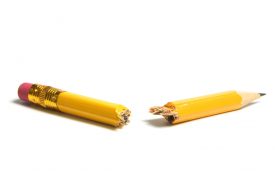-
When a Spouse Dies, Resilience Can Be Uneven
The New York Times: Losing a beloved life partner is never easy at any age, no matter the circumstance. The loss can be sudden and totally unexpected — a fatal heart attack, traffic accident or natural tragedy like a flood or earthquake. Or the loss can be long in coming from a progressive illness that gives the surviving spouse weeks, months, even years to prepare for and presumably ”adjust” to its eventual inevitability.
-
Brain Game Claims Fail A Big Scientific Test
NPR: Want to be smarter? More focused? Free of memory problems as you age? If so, don't count on brain games to help you. That's the conclusion of an exhaustive evaluation of the scientific literature on brain training games and programs. It was published Monday in the journal Psychological Science in the Public Interest. "It's disappointing that the evidence isn't stronger," says Daniel Simons, an author of the article and a psychology professor at the University of Illinois at Urbana-Champaign. "It would be really nice if you could play some games and have it radically change your cognitive abilities," Simons says.
-
Believing That Others Understand Helps Us Feel That We Do, Too
Our sense of what we know about something is increased when we learn that others around us understand it, according to new research published in Psychological Science, a journal of the Association for Psychological Science. The findings are consistent with the idea of a “community of knowledge” in which people implicitly rely on others to harbor needed expertise. Otherwise everyone would have to be omniscient to get by. “We think collaboratively,” said lead author Steven Sloman, professor of cognitive, linguistic and psychological sciences at Brown University. “It implies that people have to live in communities in order to succeed, in order to really make use of our mental capabilities.
-

Can Personality Traits Predict Who Chokes Under Pressure?
Feeling pressure may impair performance for people who score high on measures of neuroticism, a study has found. Visit Page
-
Dear Science: Why can’t I tickle myself?
The Washington Post: Dear Science, Why do we only laugh when someone else tickles us? Why can't I tickle myself? Here's what science has to say: Your question touches on one of the great mysteries of the human mind. No joke. Our inability to tickle ourselves has to do with self-awareness. At all times, without even thinking about it, we are conscious of where our limbs are and what our body is doing. And that means no funny business. Read the whole story: The Washington Post
-
Turns Out Lisa Kudrow, Sully Sullenberger, and a Bunch of Other Famous People Published Psychology Research
New York Magazine: Sometimes, scientific papers are deep, rich, challenging sources of new knowledge. You sit with them and underline stuff and take notes and come away a changed person. Other times, scientific papers are just plain fun. That’s firmly the category in which a recent Perspectives on Psychological Science paper sits. In it, Scott Lilienfeld of Emory University and Steven Jay Lynn of Binghamton University simply list 78 famous and pretty famous people who have, surprisingly, been published in the psychological literature. Read the whole story: New York Magazine

